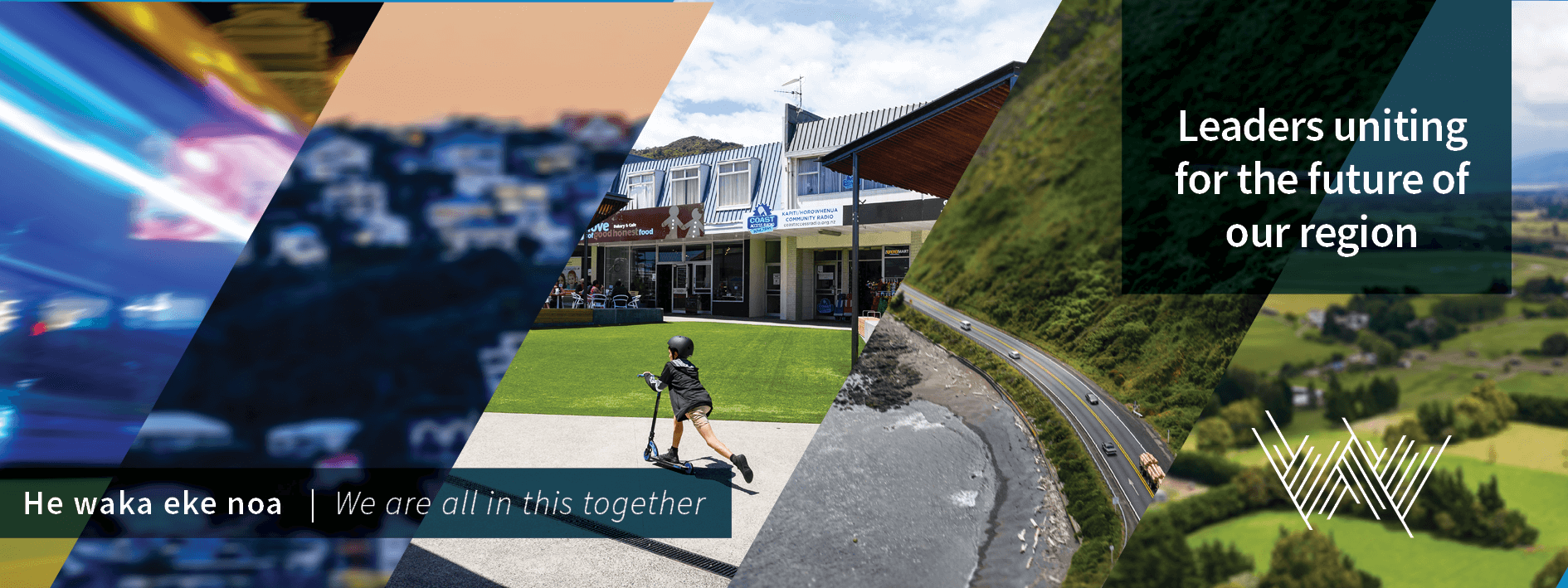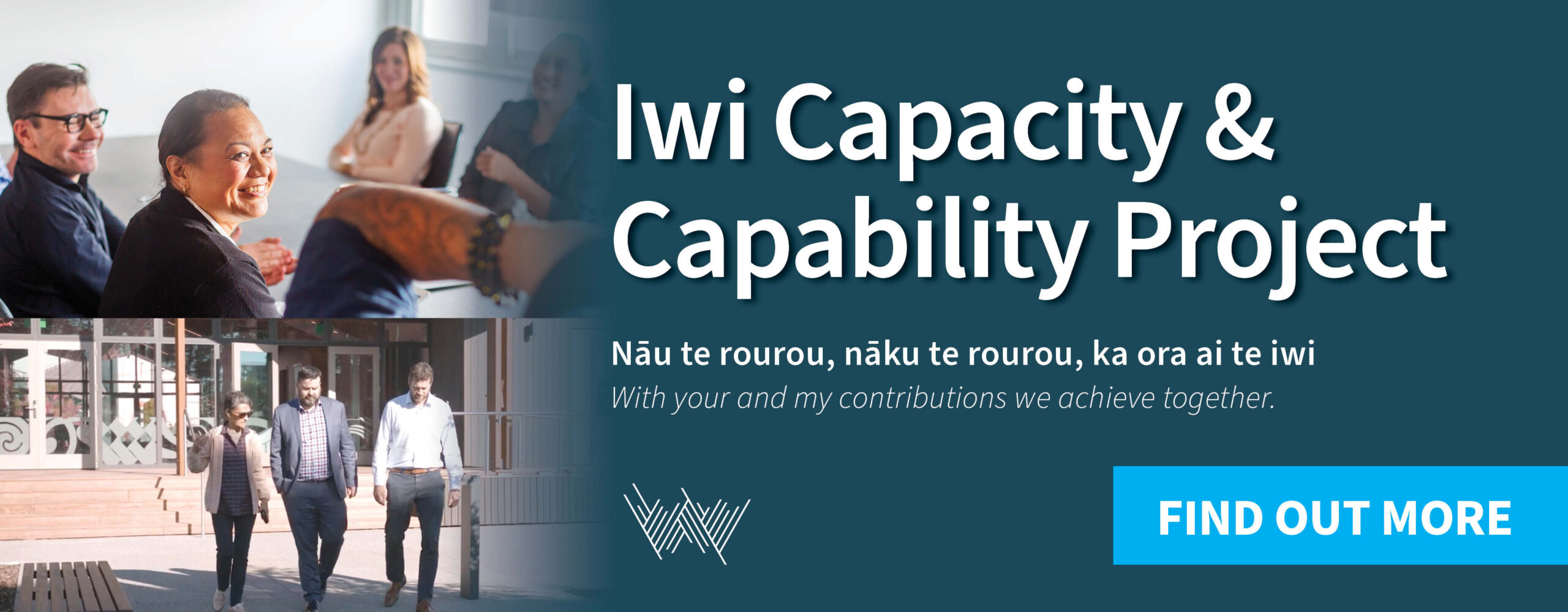Mahuru | September 2023
Kia ora koutou, this month’s pānui | eNews is a big one, but worth the read! We hope you find it informative and inspiring, and welcome your thoughts, feedback, and ideas for future editions. This months features:
- Future Proofing Our Region: Have your say on the Future Development Strategy, from 9 October
- Iwi Capacity & Capability Pilot Project
- Lessons Learned from Field Trip to Mangere Priority Development Area
- WRLC Annual Report 2022/23 Published
- Regional Economic Development Plan (REDP) Annual Summary 2022/23 Published
- Lessons Learned: Field Trip to Mangere Priority Development Area
- Interactive Regional Housing Data Dashboard is live!
- Recent Webinar Recordings Available
- Upcoming Thought-Leadership Webinars
Future-proofing our region: Have your say on the Future Development Strategy
The region’s Future Development Strategy (FDS) will be open for consultation from 9th October to 9th November, this is your opportunity to have your say on what is contained in the strategy. You will receive a notification email when the consultation goes live.
The population of the Wairarapa-Wellington-Horowhenua region is projected to grow by 200,000 people by 2053. Along with this growth, we face uncertainties relating to climate change, weather events, environmental degradation, the impacts of the COVID-19 pandemic and future major infrastructure projects. These topics invite us to examine and plan for how we live and grow together as a region. The FDS sets out a long-term vision for how and where our region will grow and what infrastructure will be needed to support that growth over the next 30 years.
Developing the Future Development Strategy is also a legislative requirement under the National Policy Statement – Urban Development (NPS-UD), and it will inform the 2024 Long Term Plans of councils.
FDS WEBINARS
As part of the FDS consultation process, two webinars will be held on to allow people to learn more about the process and thinking behind the Future Development Strategy, what the data is telling us, what this means for the region, and what the options and preferred scenarios are.
FDS Overview webinar: Tuesday 17 October, 10-11am
FDS Diving into the details webinar: Thursday 19 Oct, 10-11am
To view the FDS consultation background, timeline, FAQs and more, please visit: Future Development Strategy.
Future Development Strategy – Overview Webinar
An explainer webinar for those who would like to learn about what an FDS is, and what it means for our region.
Future Development Strategy – Dive into the Details Webinar
This webinar is intended for those who are familiar with regional spatial planning, who would like the opportunity to dive into the technical details and implications of the Future Development Strategy.
Benefits of taking part in this pilot project include:
- Building relationships with Iwi partners in our region
- Applying a Te Ao Māori approach to your plans and projects
- Filling a vacancy with a member of an WRLC iwi partner organisation
- Growth opportunities for staff who could undertake a secondment
- Gaining a job that will pay you to work part-time for your own iwi/hapu in this region
So many organisations are increasingly seeking mana whenua input, advice and engagement (including the WRLC), placing iwi partners under constant demand, but they are not adequately resourced to fully participate in these engagement opportunities. This pilot project is designed to take an active step to help solve this resourcing need.
Project Goals:
1 – to help build iwi/hapū capacity and capability
2 – to support more equitable partnerships with iwi in the WRLC work programme.
How to get involved
We welcome enquiries, CVs, and expressions of interest for current roles listed on the website, which you can view at the link below. These will be updated regularly.
There are two ways to get involved: through Iwi Secondments or Works Placements. These are geared towards supporting the sharing of systems knowledge and strengthening enduring relationships between organisations and our iwi partners.

WRLC Annual Report 2022 / 23 Published
At the latest WRLC meeting on Tuesday 19 September, the Committee approved our second Annual Report, for the 2022/23 Year. The report contains our project updates, highlights, lessons learnt from the last 12 months.
Regional Economic Development Plan – Annual Summary
WellingtonNZ are now one year in to driving delivery of the Regional Economic Development Plan on behalf of the WRLC. Highlights from year one include:
- 15 internships being undertaken through Summer of Engineering
- 269 people joining evening sessions of the technology leadership training series
- 39% increase in House of Science kit bookings across schools in Wellington City and Porirua
- Te Matarau a Māui delivering Tipu Pakihi – an inaugural Māori business symposium.


Interactive Regional Housing Data Dashboard
An interactive housing data dashboard is now live and operative for the Wellington-Wairarapa-Horowhenua region. This first-of-its-kind dashboard, allows people to more quickly and easily access information to contribute to making evidence-informed decisions which lead to good housing outcomes.
Lessons Learnt from Auckland: WRLC Field Trip to Māngere Priority Development Area
In late July, several members of the WRLC Secretariat took a roadtrip to Tāmaki Makaurau Auckland, along with a number of other local government and central government staff.
The purpose of the trip was to inform our work by hearing from others around the country about what they have done and are doing with their Priority Development Areas (PDAs) – in particular the Manukau/Māngere PDA.

The Regional Food System Strategy (RFSS) is one of the Wellington Regional Leadership Committee’s key regional climate projects, being led by Tessa Acker at Te Whatu Ora.
The vision of the RFSS is to shift the current regional food system to one that is sustainable, equitable, and locally-based. Taking a Te Tiriti focus, it will
contribute to the holistic wellbeing of our community, improve economic prosperity in the region, while conserving a flourishing environment for future generations.
The project has been holding many community hui and workshops to build relationships, and understanding of the food system. As part of these ongoing events, on 21 September the Iwi/hapū Rōpū and the Community Advisory Board came together for whakawhanaungatanga and began to identify shared priorities for the strategy.
There was a strong emphasis on regenerating and restoring our environment, procurement of local food, ensuring whānau and tamariki can access good, healthy, food, and identifying strong policy and legislation areas to drive change. There will be a larger Food System Forum at the beginning of November- look for details soon!
Upcoming Thought Leadership Webinars
We are lucky to have some excellent speakers and topics coming up in Q3. We hope you will take advantage of these easy-to-digest talks, which are usually only 20-30 minute, followed by Q&A.

G.O.D. help us: Greenspace-Oriented Development, an alternative strategy for urban densification in suburban cities
10:30-11:30am, Mon 06.11.23
PRESENTERS: Dr JULIAN BOLLETER, LANDSCAPE ARCHITECT, PROFESSOR, AUTHOR
and ALAN WHITELEY, Head of Landscape Architecture and Urban Design at WSP
We hope you can join us for this fascinating talk with Dr Julian Bolleter – Julian is a Professor, Author and Co-Director at the Australian Urban Design Research Centre (AUDRC) at the University of Western Australia and is the Program Director of AUDRC’s Master of Urban Design course.
Communities often regard ‘Business As Usual’ urban densification as an assault on the suburban dream. In response this presentation stakes out the potential of Greenspace Oriented Development (GOD) in which urban density is correlated with upgraded green spaces with reasonable access to public transport.
These parks will provide the amenity – otherwise offered by suburban backyards – to adjacent residents living in medium density infill development. Through such strategies, GOD offers a 21st century model for urban densification that aligns with the lifestyle aspirations of Australasia’s suburban residents. GOD help us!
Thought Leadership Webinars
Me Tū ā-Uru – United in right relationships to each other and the environment
Me Tū ā-Uru is an action plan for environmental governance and decision making that calls for shared authority of Aotearoa’s special places to ensure a flourishing environment for future generations.
In this talk, Three members of the Me Tū ā-Uru working group Professor Maria Bargh, Professor Carwyn Jones and Ellie Tapsell spoke to the action plan and the challenges and opportunities it presents for reaching healthier long-term human and environmental relationships.
Emily King – Re-food, a healthy approach to our food system
In this webinar, Emily King spoke to her recently published book Re-food. Emily advocates for a food systems approach to Aotearoa’s troubled food networks – one that considers all paths and processes from farm to family table.
Emily’s book explores the best path forward to address challenges we face with soils, waterways, climate change, food waste, packaging, unhealthy diets and a lack of access to food. It offers tools, insights and mindset changes that chart a path towards a healthier, more sustainable food future.
About the Wellington Regional Leadership Committee
WRLC is a joint regional partnership which brings together Iwi leaders, Mayors, Ministers of Government, and an independent chair, to work collaboratively on cross-boundary, growth-related challenges in the Wellington-Wairarapa-Horowhenua region.
WRLC exists to find better ways of working together to cultivate a region where people want to live, work and thrive.
Our projects cover five broad key areas that are integral to our shared growth-related cross-boundary challenges. These five areas are iwi capacity, housing, climate, transport and economic development and recovery. Find out more about our work on our project page, and if you’d like to talk or collaborate – get in touch at hello@wrlc.org.nz.










